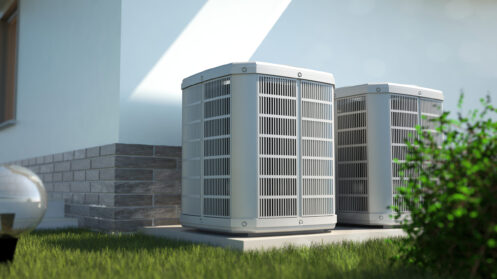
The lifespan of your HVAC unit is directly related to your unit’s fuse. The fuse interrupts the electrical current when issues arise, such as power surges or electoral overloads, keeping your HVAC unit safe.
HVAC Fuses
HVAC systems rely on a complex interplay of electrical components to function optimally. Fuses act as protective devices and prevent system damage from electrical faults. Fuses are used in the evaporator coils, motors, compressors, and wiring configurations. Without fuses, your HVAC system would become overloaded and break down.
Fuse Lifespan Factors
How long your fuse lasts depends on several factors: usage, quality of materials, and environmental conditions. Usage refers to how often you use your HVAC at home. Is it often overwhelmed with back-and-forth requests from hot to cold and back again? Do you run it 24/7 year round, or does it have breaks where the system is shut off? The more the system is used, the more wear-and-tear the fuse undergoes.
The quality of materials used to make the fuse matters as well. Higher-quality materials mean a longer-lasting part. Environmental conditions refer to the type of environment your system is in. Is your HVAC system outside? That can make it more likely to suffer additional wear and tear from extreme temperatures, moisture, and other contaminants. We often recommend protective covers to keep these issues at bay.
Average Lifespan of HVAC Fuses
The average lifespan of an HVAC fuse is anywhere from 10 to 20 years under normal operating conditions. We tend to see most fuses lasting over a decade if they undergo preventative maintenance and are stored in safe conditions away from extreme weather. Fuses may tend to fail prematurely when homes are in extreme climates, such as intense heat in the summer or frigid, icy winters. The more intense the temperature, the more stress is placed on the machine, and the more likely it is to need replacement.
Signs of a Failing HVAC Fuse
Pay close attention to the signs of a failing fuse to prevent system damage or a complete failure. One of the most common signs of a failing fuse is frequent tripping. When the fuse trips, the whole system will lose power. If you notice that your system is often tripped, the fuse might be the problem. Another common sign of fuse failure is inconsistent heating and cooling. You might notice that the airflow feels choppy. You sometimes feel a rush of air; other times, it spurts out in little streams of air. You might also notice that sometimes the air is not the correct temperature. You have your unit set on cold, but the air moving through the vents is warm. That’s a sign of a faulty fuse.
If your unit is running smoothly but you want to ensure the fuse remains in good condition, we recommend periodic inspections in addition to preventive maintenance. Do you see any signs of visible damage? What about discoloration? Maybe you see a broken filament? If you see any signs of damage to the exterior or interior of the unit, we recommend having the entire unit looked at by a professional. Catching an issue at this stage is always better than leaving it until it fails. The longer the issue is ignored, the more likely it is that other areas of the unit will be damaged.
Importance of Maintenance and Repair
Maintenance is the best way to ensure a long lifespan if you want your fuse to last as long as possible. Regular maintenance includes checking and replacing the fuses as needed and properly cleaning the fuse and its surrounding components. During this appointment, technicians can also examine the entire HVAC unit to ensure it is operating at peak efficiency.
Most HVAC fuses will last a decade or more under normal circumstances. Promptly addressing any signs of fuse-related issues will help ensure they last the full decade. Yearly cleaning of your HVAC system will also help the fuse and other internal components stay in top condition. Keeping your home cool or toasty, depending on the season, is possible thanks to your HVAC system. Looking for help with your HVAC? Island Heating & Air Conditioning is here to help. Contact us today to schedule your appointment or to find out more!
Tags: Heating Tips, HVACTags: HVAC
January 17, 2024 9:18 pm

